Tripatini
the world's smartest travel social network
Excursions on Italy's Liguria Coast: Marble Capital Carrara

We established our base camp in Sestri Levante and settled into an eight-night vacation rental in the center of town. On previous trips to this area we saw the white mountains surrounding the village of Carrara and made a note to someday add it to one of our itineraries… today was the day!
Tunnels and Caves in the Hills of Carrara, Italy
The drive from Sestri was less than two hours, and when we arrived in Carrara, we were taken aback by the quiet mining village situated at the base of the craggy, saw-tooth ridge line which flowed into a mountain range and disappeared into the clouds.
As tourists, we expected stores selling finished products, slabs of polished marble to order and a miniature statue or two on display for that impulse purchase. The actual mines were miles away, up these steep mountains and the route was clearly marked by road signs… all pointing up.
The roads leading to the quarries were semi-paved and hard packed dirt with no traffic direction signage - is it a two-way road or one-way? This was not a real concern until we rounded a corner and came face to face with gigantic trucks carrying humongous chunks of white marble… got our attention really fast!
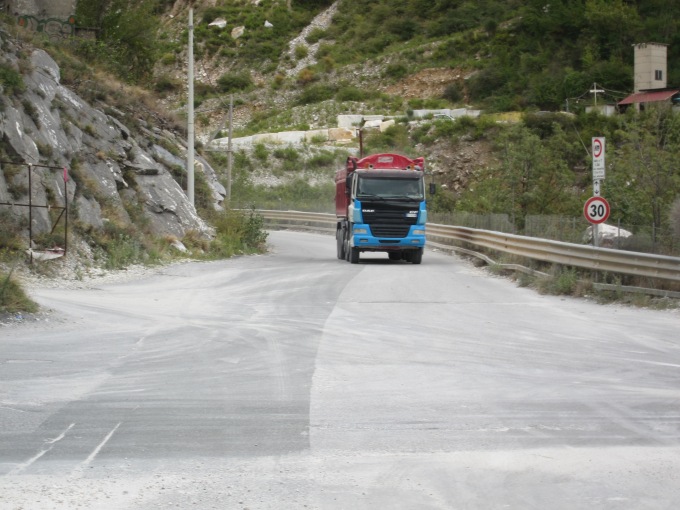 This is not the time to play “chicken”
This is not the time to play “chicken”
We eventually figured out the system; there is one main road up which continues on down, all with a one way traffic pattern, except near the actual mines and the construction areas. You have to figure it out - cross your fingers and just drive.
The Marble Mines
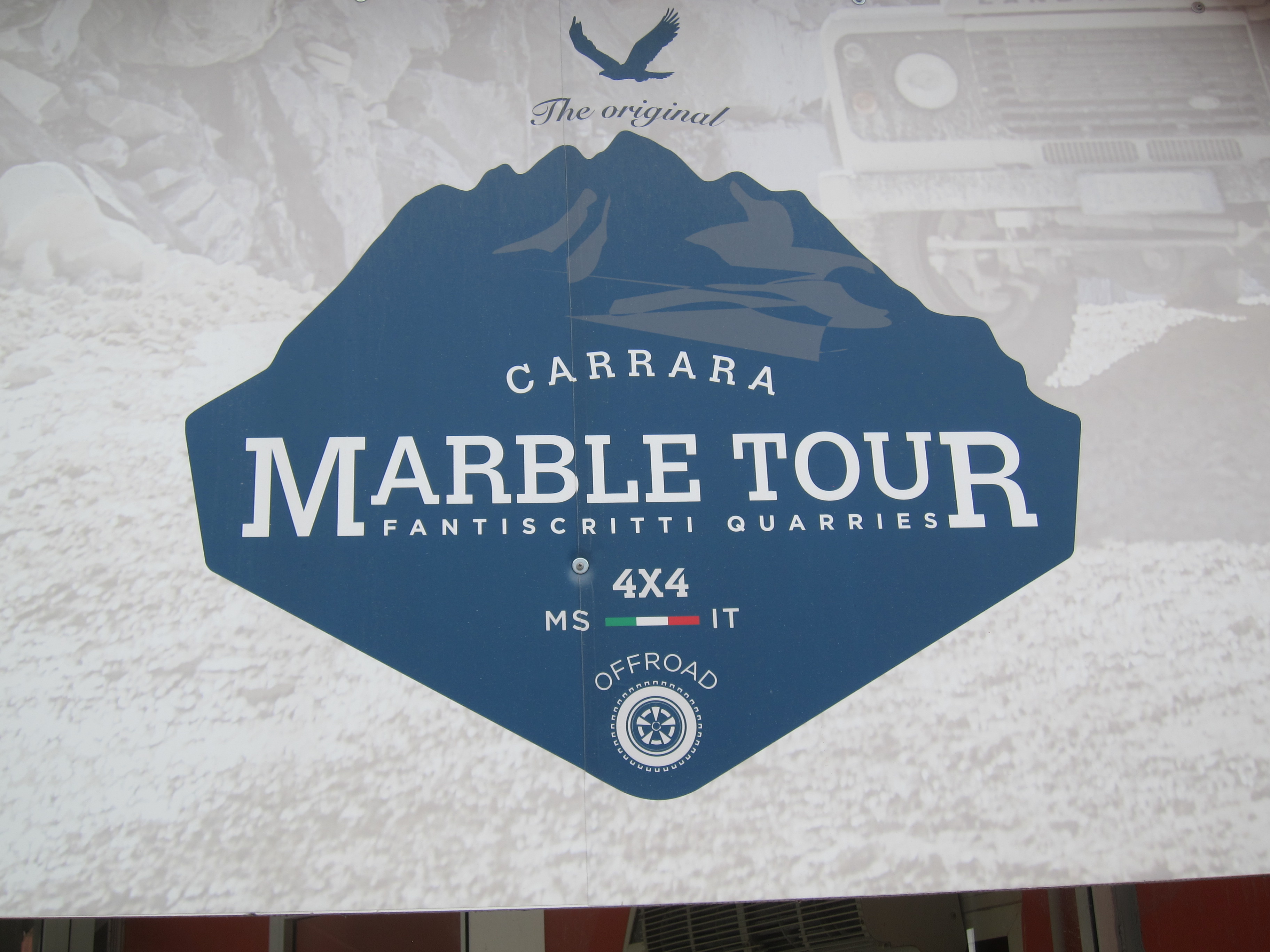 Tours into the mines are available
Tours into the mines are available
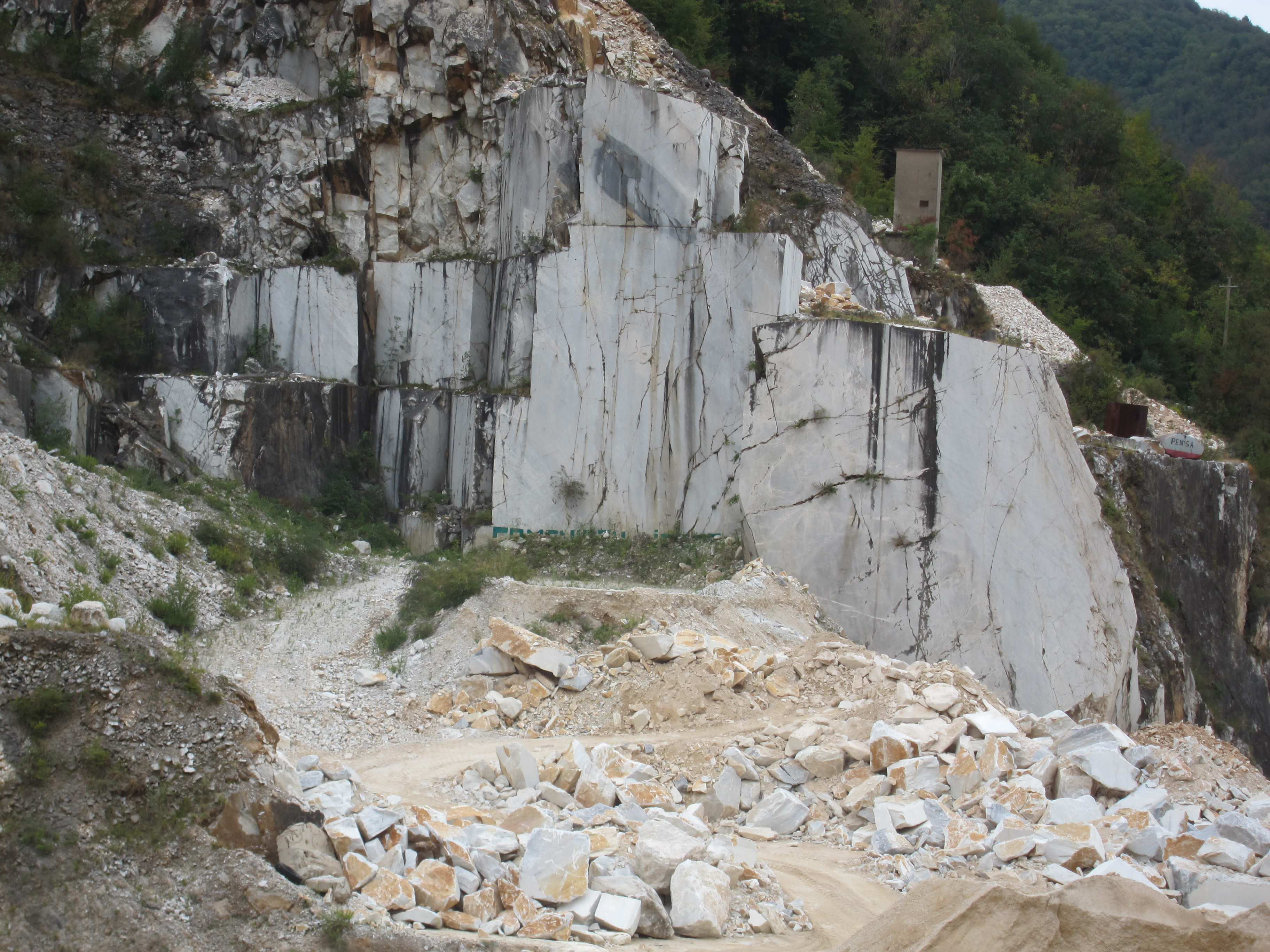
A mountain of raw marble
 Gigantic trucks carrying tons of material
Gigantic trucks carrying tons of material
Mining Tools of the Past
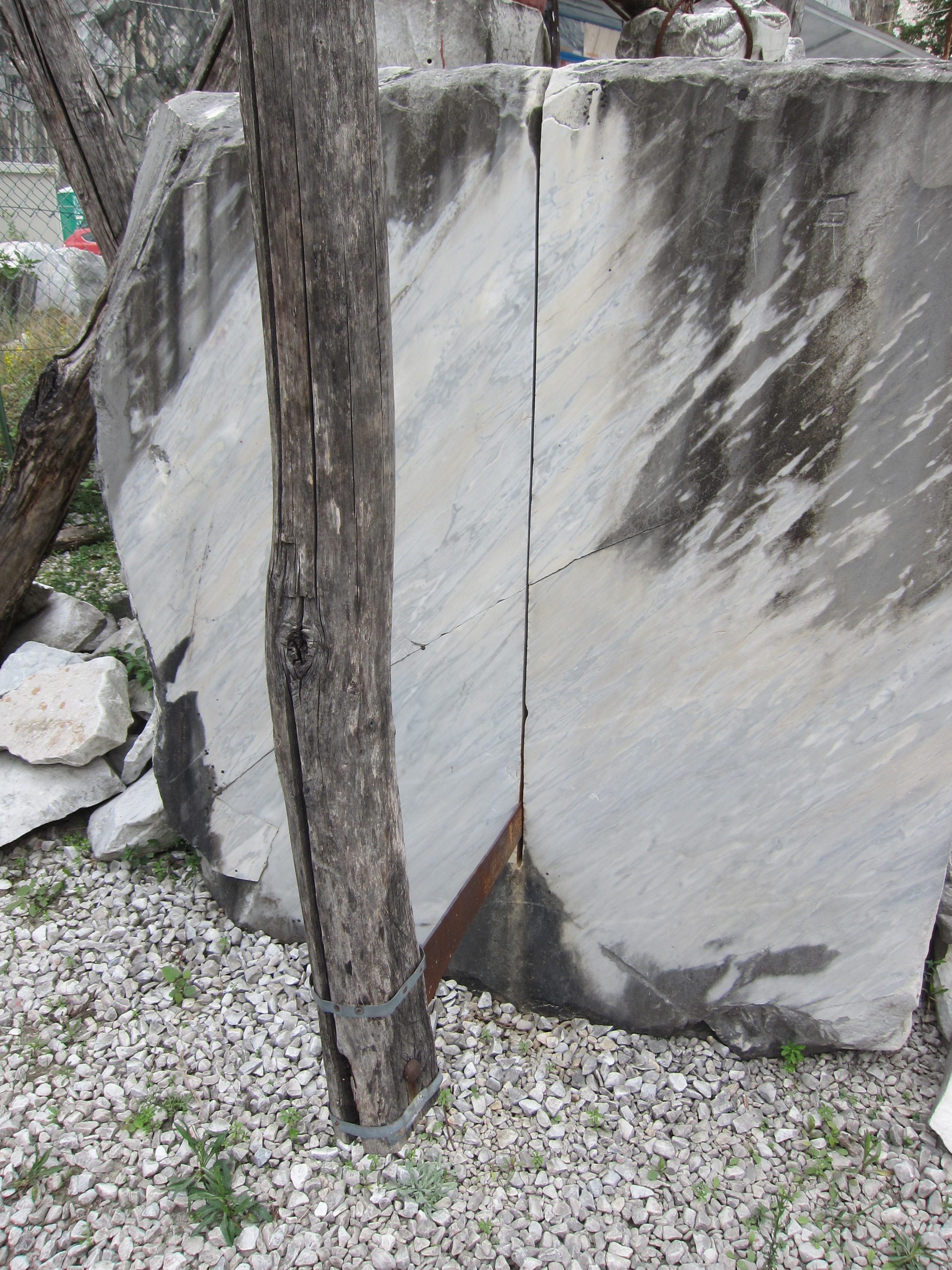 Handsaw used to cut the marble about three inches per day using two men
Handsaw used to cut the marble about three inches per day using two men
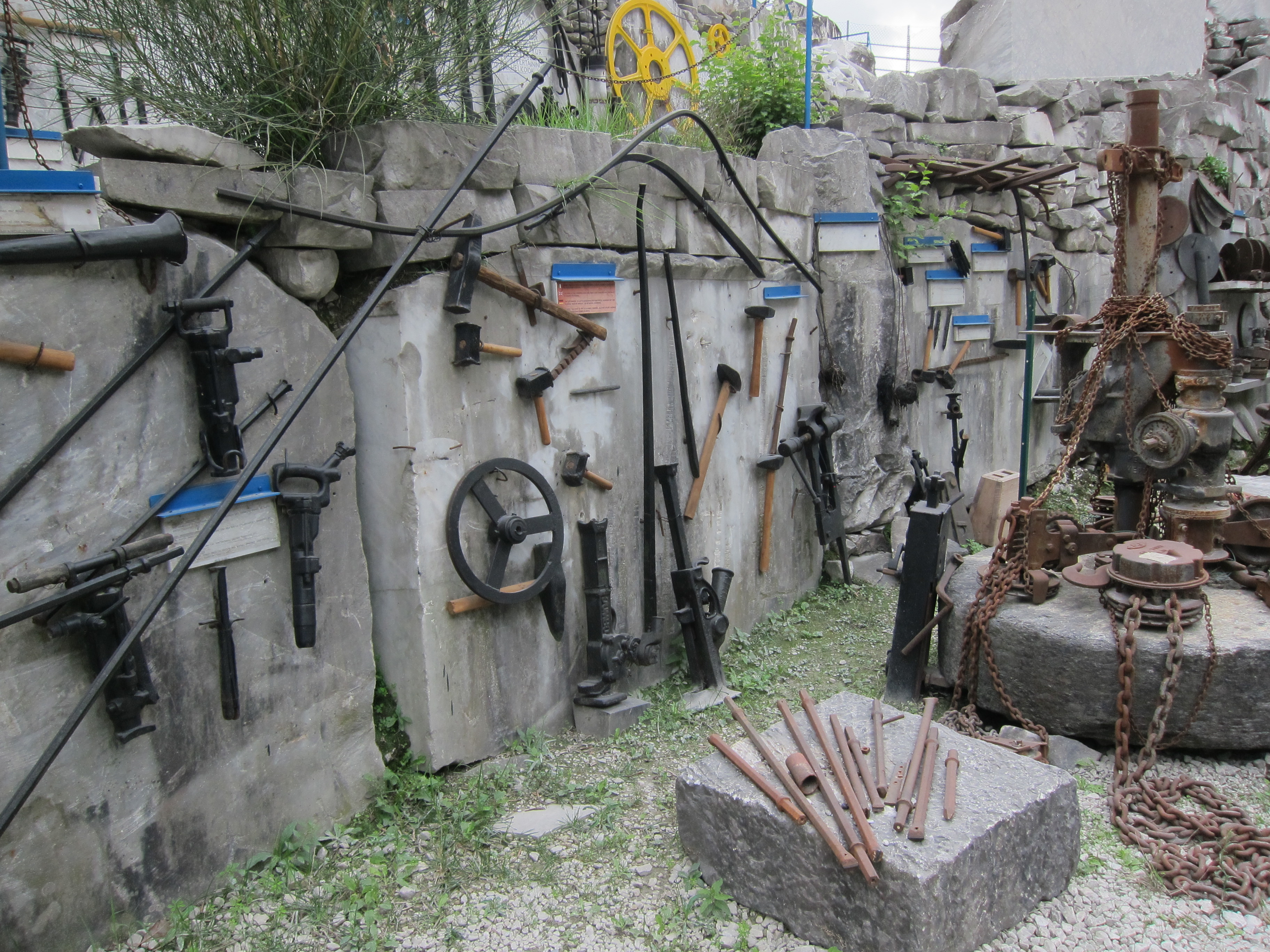 Hand tools on display
Hand tools on display
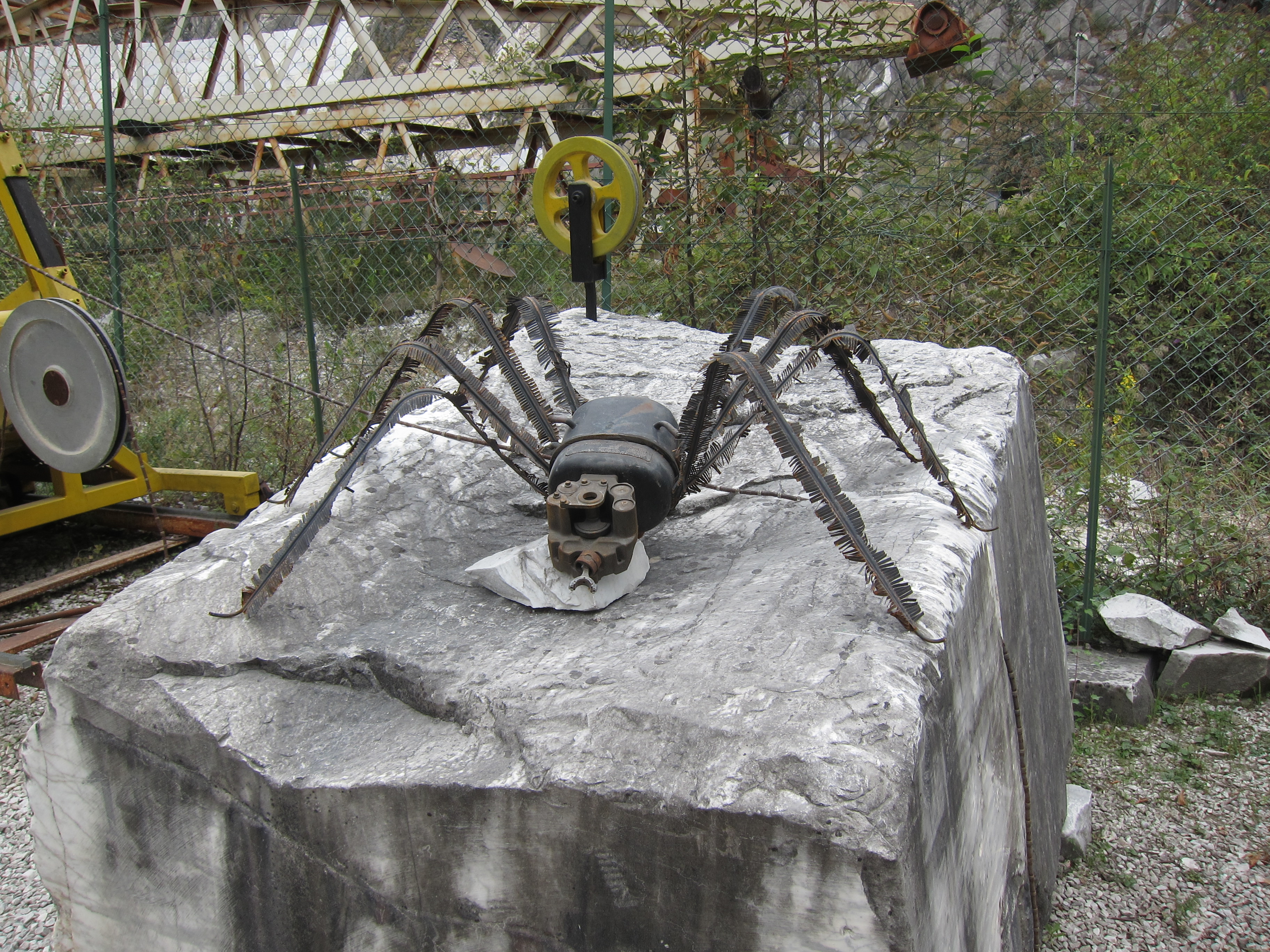 Early use of power tools to drive the cutting cables
Early use of power tools to drive the cutting cables
Mining Tools of the Present
Marble has been used for thousands of years, and over time the mining tools evolved from primitive hand tools to high-speed diamond stone-cutting tools and tungsten carbide steel band saw blades. But all methods are still labor-intensive and expensive.
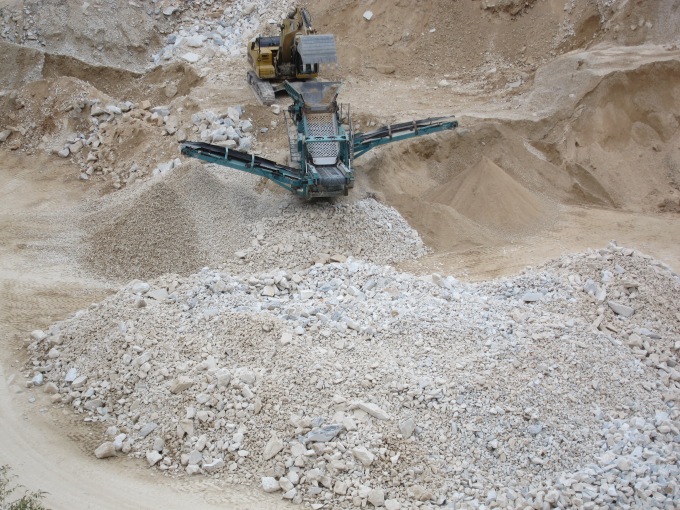 One of the monsters working the mines
One of the monsters working the mines
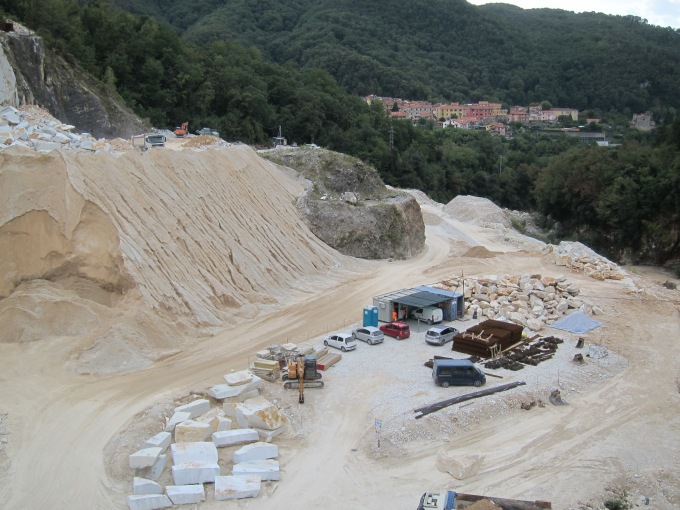 Note the size of the cars
Note the size of the cars
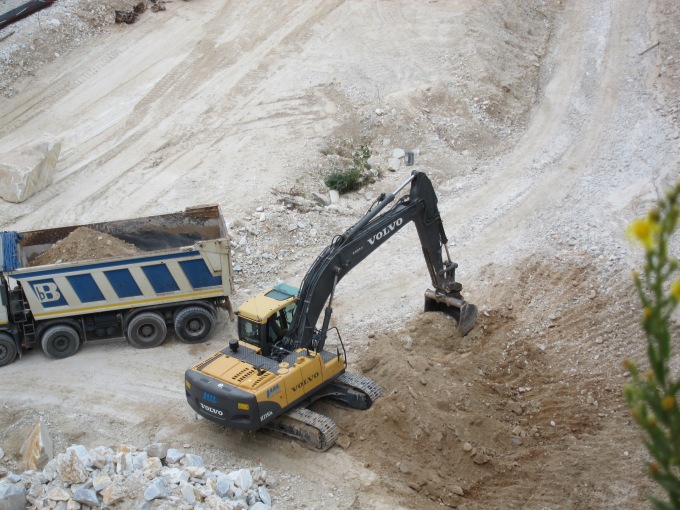 BIG, heavy-duty equipment – yet from here they look like toys
BIG, heavy-duty equipment – yet from here they look like toys
Before and After
In 1501, Michelangelo Buonarroti was presented with a damaged block of Carrara marble and created the magnificent Statue of David about three years later. For more information about Michelangelo please go to the Michelangelo Gallery webpage.
Driving in the Mine Area Has its Moments
We had to literally “feel” our way along the unmarked, semi-paved roads.
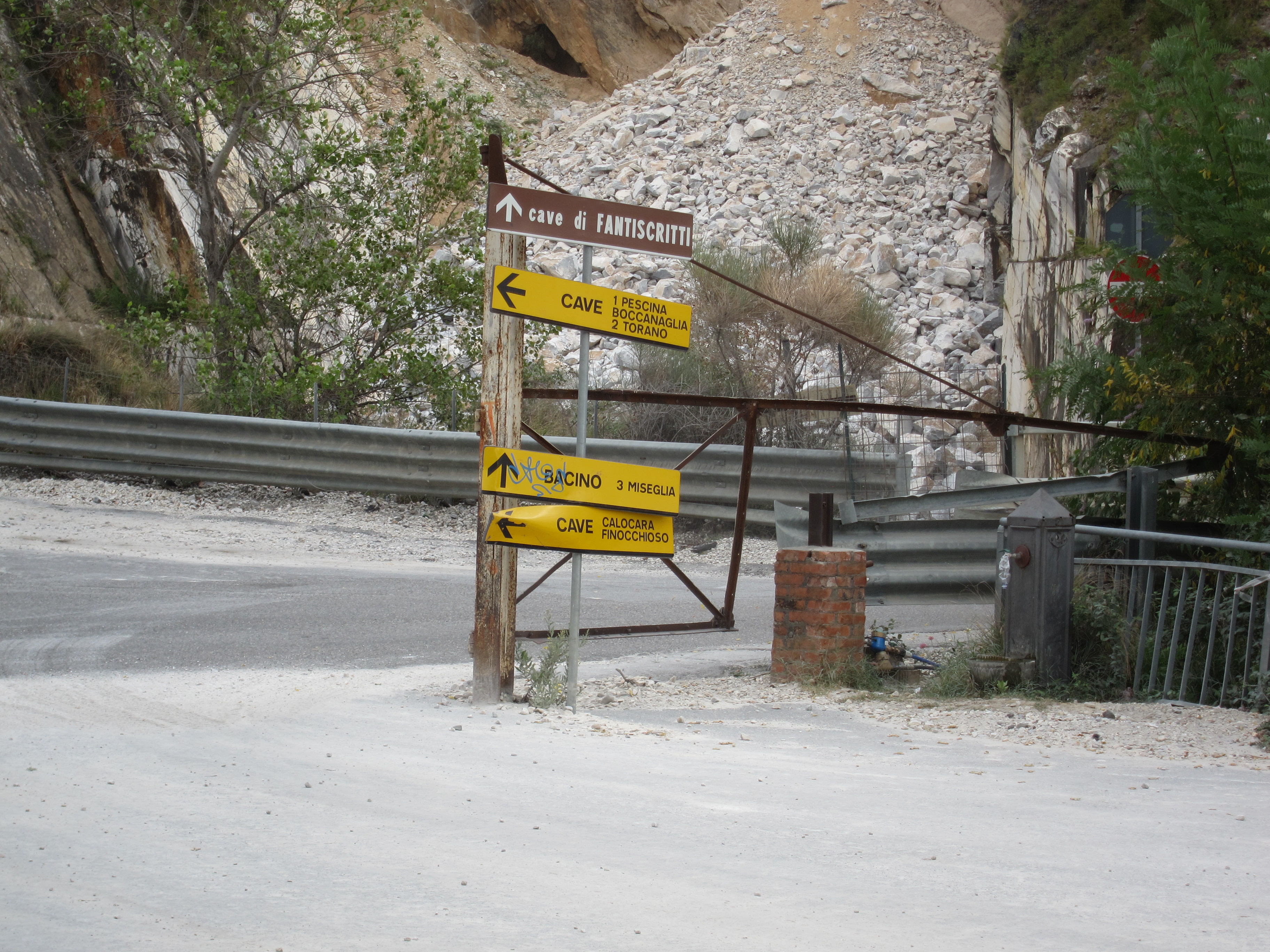
Road signs indicating the names of specific caves… aka mines
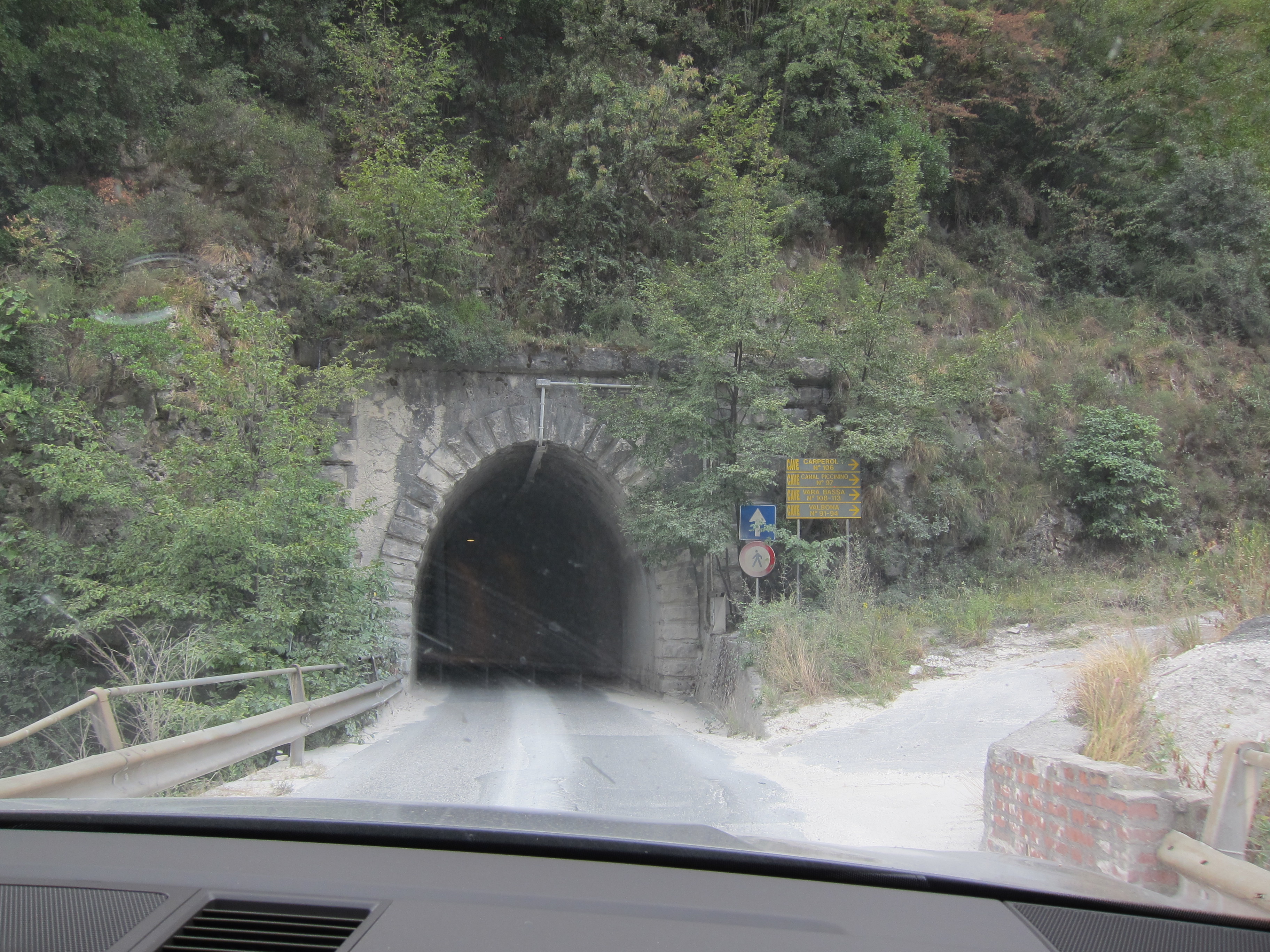 One of many tunnels
One of many tunnels
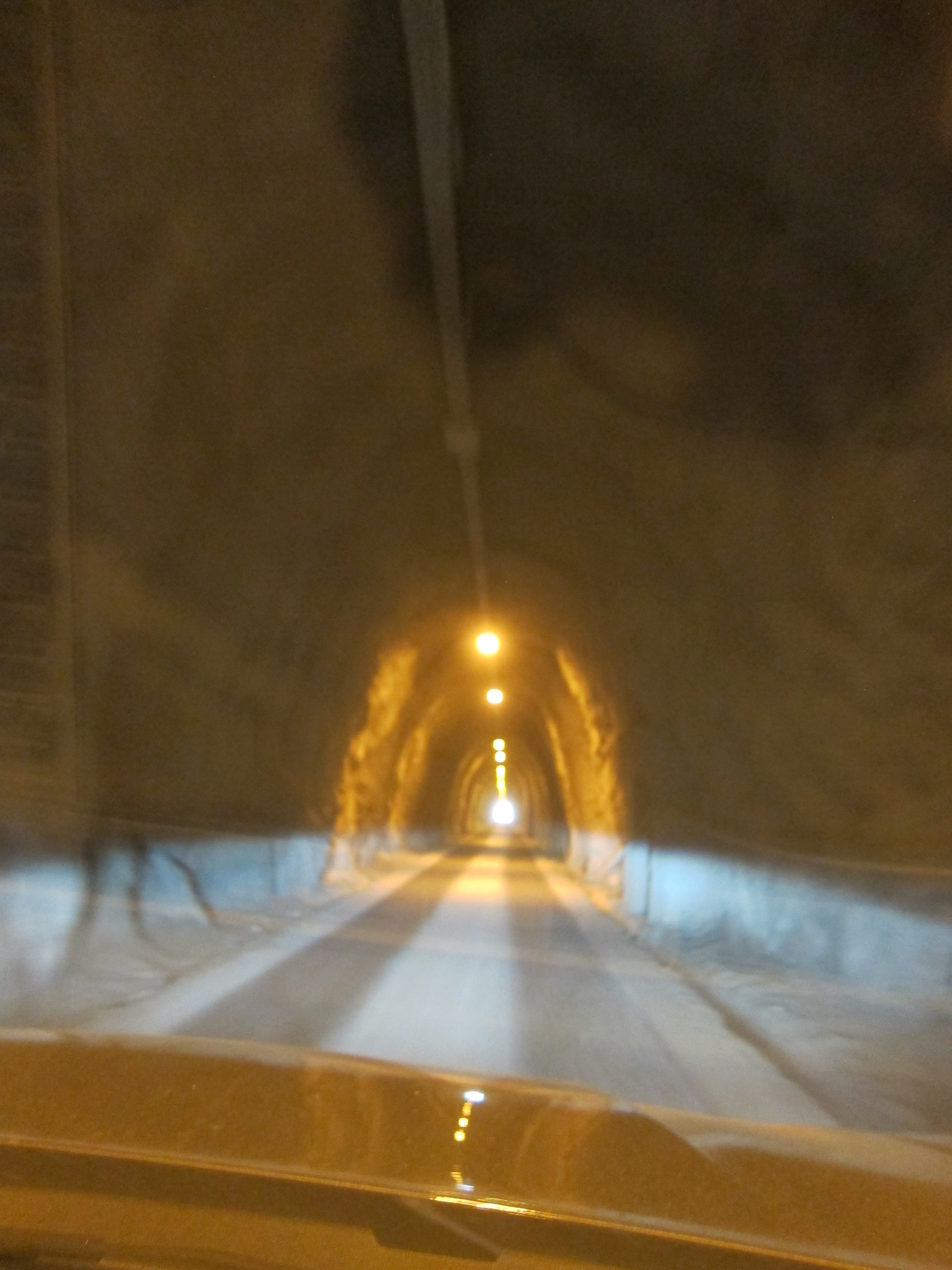 Can you see the end of this one?
Can you see the end of this one?
The video below is a brief clip of the view from within one of the many tunnels that we had to traverse in order to get back down the mountain of marble…. add some volume and enjoy!
In Summary
Our Carrara side trip out of Sestri Levante was filled with adventure and exposed us to incredible scenery as well as a few sweaty palms while driving in assorted tunnels on unmarked roads. Worth it? You bet - and being independent travelers was our passport to the freedom of choice.
Please follow us in the next article…Excursions on Italy's Liguria Coast: Cinque Terre.
After all, what is the hurry… be inspired.
© 2016 Inspired Travel Itineraries with Bob and Janice Kollar © 2016 Picture Credits Bob & Janice Kollar
Videos
Groups
-
India
173 members
-
Tour Operators
873 members
-
Ireland
93 members
-
South Dakota
17 members
-
Azerbaijan
17 members
-
Shopping the World
55 members
-
Tech for Travel/Hospital…
87 members
-
Andorra
26 members
-
Online Corner
75 members
-
Minnesota
22 members
-
Backpackers & Hostels
84 members
-
Portugal
60 members
-
Turks and Caicos
26 members
-
Agritourism/Farmstays
72 members
-
Zambia
21 members
© 2025 Created by EnLinea Media.
Powered by
![]()
Badges | Report an Issue | Privacy Policy | Terms of Service
You need to be a member of Tripatini to add comments!
Join Tripatini